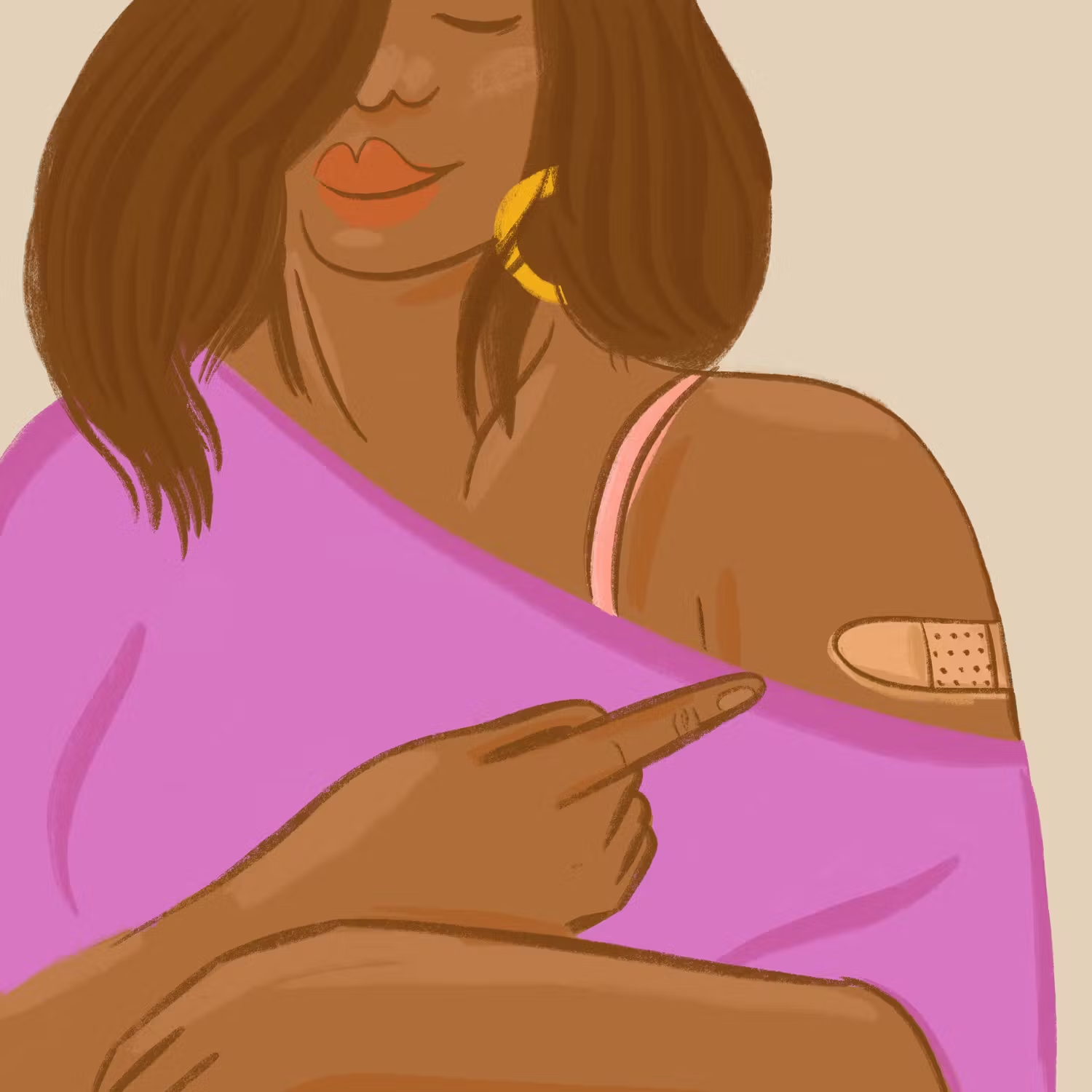IS IT SAFE TO GET A FLU SHOT WHEN YOU'RE PREGNANT?

If you’re pregnant during flu season, you’ve probably already been told by your doctor or midwife to get a flu shot. More than just a bad cold, the flu can be especially dangerous for pregnant moms and young infants, and the flu shot is the best way to prevent it. That’s why health officials recommend that every pregnant woman gets vaccinated against the flu to help protect them and their baby.
Even so, the flu shot has gotten something of a bad rap, leaving some women concerned about how safe it is to get it during pregnancy. Despite health officials recommending all pregnant women in the United States get vaccinated, only 48.4 percent reported doing so during the 2021-2022 season. That number drops to 45.2 percent when looking solely at Black women.
It’s not just pregnant women who are reluctant. The Centers for Disease Control and Prevention recommends everyone over the age of six months get the flu vaccine, but just 42.9 percent of Floridians — and 39.5 percent of Black people in Florida — were vaccinated against the flu in 2022-2023. The lowest uptake was in younger adults, of whom barely 35.2 percent of adults under 50 got vaccinated against the flu in 2022-2023.
There are a lot of reasons people don’t get vaccinated, but a common concern (especially among pregnant women) is whether it’s safe, effective, and necessary.
THE FLU SHOT IS SAFE.
Millions of pregnant women have been vaccinated against the flu, and study after study has shown that the flu vaccine is safe for pregnant women and their babies during any trimester. While side effects can happen after getting a flu shot, the worst nearly all women will experience is a sore arm.
THE FLU SHOT WON’T GIVE YOU THE FLU.
In fact, it can’t. Most flu shots are made up of inactivated (or “dead”) flu virus. In order for it to give you the flu, it would need to be able to multiply inside your body, which dead viruses can’t do. It is biologically impossible for the flu shot to give you the flu. Period.
If you get the flu immediately after getting the flu shot, it’s because you were exposed to it before the flu vaccine could work its magic. Most people need at least two weeks after getting the vaccine to build up enough protection in their bodies to keep them from getting the flu.
THE FLU SHOT IS EFFECTIVE.
While the effectiveness of the flu vaccine varies, studies show they reduce the risk of flu illness by between 40 percent and 60 percent among the overall population. No vaccine is 100 percent effective, but a lot of media outlets pounced on that number as if it were a bad thing. In fact, those percentages mean a lot of people are protected — even if they got the flu anyway. Every year the flu vaccine prevents millions of cases of flu and hospitalizations.
When you get the flu vaccine, it tells your body what to look for so it can build up defenses against it. Your body is like a soldier in the army, and getting vaccinated is like going to boot camp. It has to learn what enemy she’s fighting and how to best fight it so that she’s ready when the war begins. If she waits until the first battle to start training, she’s likely to get hurt.
If you get the flu vaccine and get the flu anyway, your body will still have a head start on defending itself. You’ll be sick for a shorter amount of time, have less severe symptoms, and be less likely to be hospitalized or die because of the flu.
IT’S NOT JUST ABOUT YOU.
Pregnant women who get seriously sick with the flu are at an increased risk for miscarriage, preterm labor, having an underweight baby, as well as other potentially dangerous complications. Protecting yourself against the flu means you’re also protecting your baby.
That protection appears to last even after the baby is born. When pregnant moms get the flu shot during pregnancy, their babies are less likely to get the flu during the first few months of life when they are at their most vulnerable.
DON’T BELIEVE THE MISINFORMATION.
A lot of the scary things you might read or hear about the flu shot just isn’t backed up by science. If you have questions or concerns about vaccines during pregnancy, bring them up to your doctor or midwife.